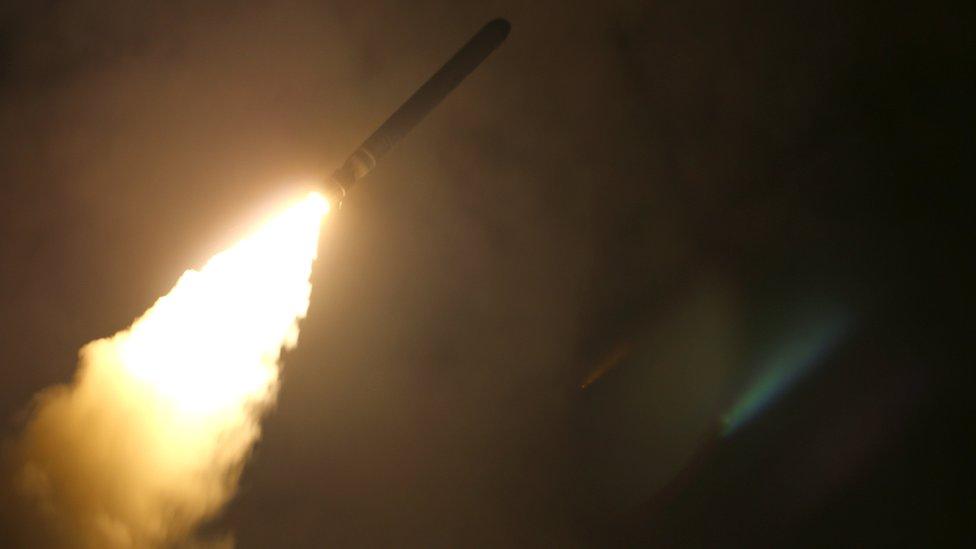Syria air strikes: Theresa May says action 'moral and legal'
- Published
May: We have not done this because President Trump asked us to
Theresa May has said it was "legally and morally right" for the UK to join air strikes against the Syrian regime to prevent "further human suffering".
She told MPs there was "clear evidence" the Assad government was behind the Douma chemical weapons attack.
The UK had "explored every diplomatic channel" in response but regrettably decided there was no alternative to "limited, carefully targeted action".
But Labour leader Jeremy Corbyn said the action was "legally questionable".
Calling on Mrs May to publish the legal advice in full, Mr Corbyn said the government must be "accountable to this Parliament and not to the whims of this US president".
He questioned who was responsible for the attack, saying that "while much suspicion rightly points to the Assad government", other groups had carried out similar attacks and weapons inspectors must continue their work.
But some Labour MPs backed the decision to launch air strikes.
Taking questions for more than three hours, Mrs May defended the decision not to seek Parliamentary approval for the intervention after criticism from opposition parties.
MPs then held the first of two emergency debates on Syria which were approved by Speaker John Bercow, with the second to take place on Tuesday.
Monday's debate ended with a vote, forced by the SNP, on whether the House had sufficiently debated the matter of Syria.
The government won the motion by 314 to 36 votes, a majority of 278.
Sites near Damascus and Homs were hit on Saturday by the US, French and UK in response to the alleged chemical attack on Douma on 7 April.
Both Syria, which denies any chemical use, and Russia, which provides military support to the Syrian government, have reacted angrily to the action.
Briefing Parliament, Mrs May insisted it was in the UK's national interest to act - insisting that "we have not done this because President Trump asked us to but because it was the right thing to do".
She said the use of chemical weapons could not be "normalised" in either Syria or elsewhere, insisting the attack was a "stain on humanity" and fitted the pattern of the regime's previous use of such weapons.
Corbyn: PM accountable to Parliament not the whims of US president
"No other group could have carried out this attack," she told MPs, adding that the Syrian authorities had reportedly attempted to "conceal the facts... supported by the Russians".
The military response, she insisted, was aimed squarely at degrading the regime's capacity to carry out further "indiscriminate" attacks, rather than to try and topple the regime.

Did MPs back May?
Analysis by BBC political editor Laura Kuenssberg
MPs will talk again tomorrow.
There are, after all, hugely important principles for them to talk about. They will not, however, have votes that make a difference to anything other than the political atmosphere at Westminster, unless something very unexpected happens.
Labour will lead a debate on Tuesday about Parliament's right to approve military action, or not. But the RAF pilots who flew sorties from Cyprus in the early hours of Saturday won't be told by Parliament through a vote that their actions are considered by MPs to be right or wrong.

Addressing calls for Parliament to have been given a vote, she said much of the intelligence on which the action was based could not have been shared with MPs and a speedy response was needed to protect the integrity of the operation and prevent further suffering.
"We have always been clear that the government has the right to act quickly in the national interest," she said.
"I am absolutely clear that it is Parliament's responsibility to hold me to account for such decisions but it is my responsibility as prime minister to make these decisions."
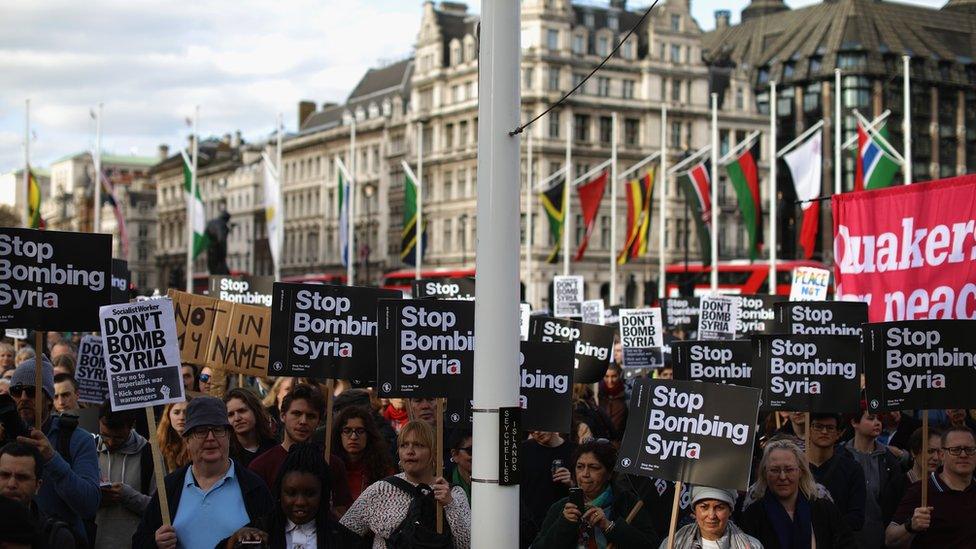
The Stop the War Coalition protested outside Parliament as MPs debated
Returning to the United Nations to try to secure a Security Council resolution would have been futile, she said, and effectively given Russia a "veto over British foreign policy".
Mr Corbyn called for a new War Powers Act, saying the convention that Parliament should be consulted before military action was "broken" and had to be replaced by a "legal obligation" to get the backing of MPs.
Contrary to what Mrs May claimed, he said it was evident all "non-military means had not been exhausted".
"There is no more serious issue then the life and death matters of military action. It is right that Parliament has the power to support or stop the government from taking planned military action."
Amateur footage shows strikes on a military research facility in Damascus, while state TV shows the damage
The SNP's Westminster leader Ian Blackford said for Parliament to be consulted about military action "after the event" was simply not good enough.
"When we are talking about military action in a third country, that is a decision that Parliament should be taking and not government itself," he told BBC News. "That is what democracy is all about."
Liberal Democrat deputy leader Jo Swinson said the decision had been taken "behind closed doors" and much more scrutiny was needed of the objectives behind it.
While the situation in Syria was "very serious", she said there was not the same "acute urgency" for military intervention on humanitarian grounds as there had been in Libya in 2011.
Downing Street published its legal case for its part in the strikes, stating that the action was legally justified on humanitarian grounds.
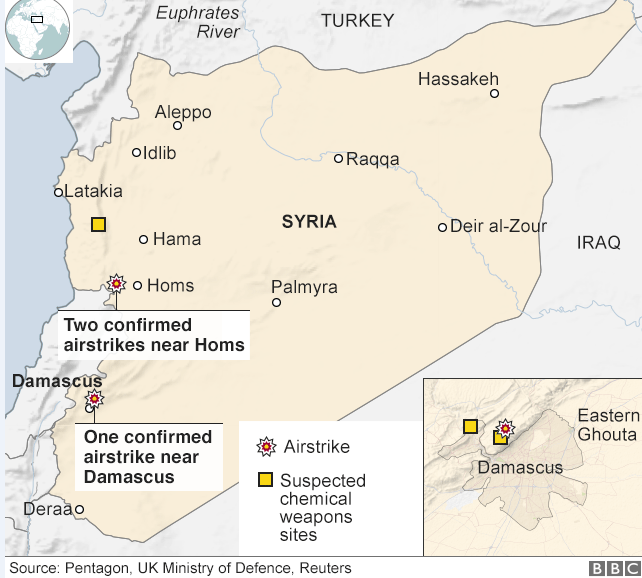
On Saturday, the Ministry of Defence said eight Storm Shadow missiles had been launched by four RAF Tornados at a former missile base, 15 miles west of Homs.
It is thought President Bashar al-Assad's regime had been stockpiling materials used to make chemical weapons there, it said.
There has been no confirmation of any civilian casualties. The MoD has stated the facility was located "some distance" from "concentrations of civilian habitation".
The UK and US have said the strikes were successful, with President Trump warning the US is "locked and loaded" for further action if there are more chemical attacks.
On Saturday, the UN Security Council rejected a resolution drafted by Russia, while all Nato allies have given the military action their full support.
Correction 22 May 2018: This article has been amended to correctly report Jeremy Corbyn's comments about an alleged chemical attack in Douma.
- Published14 April 2018
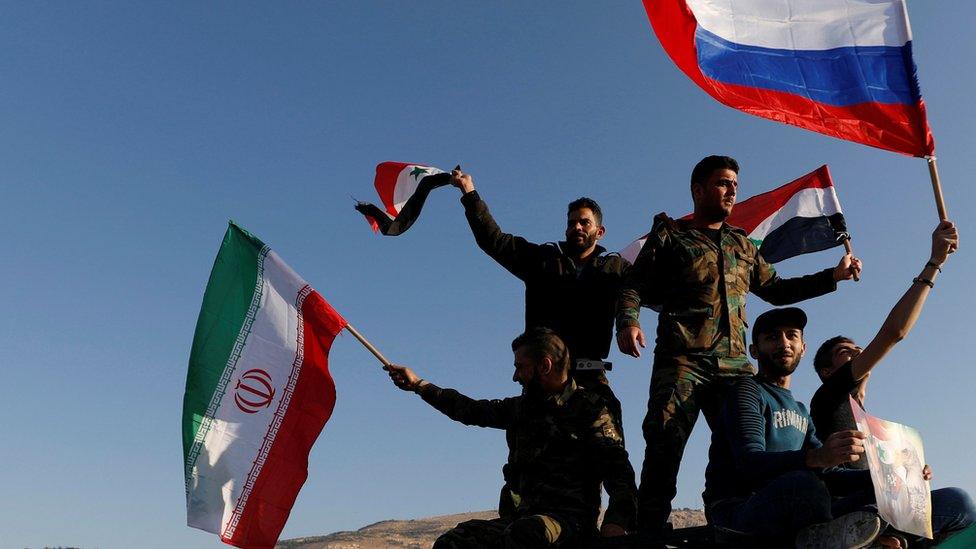
- Published15 April 2018
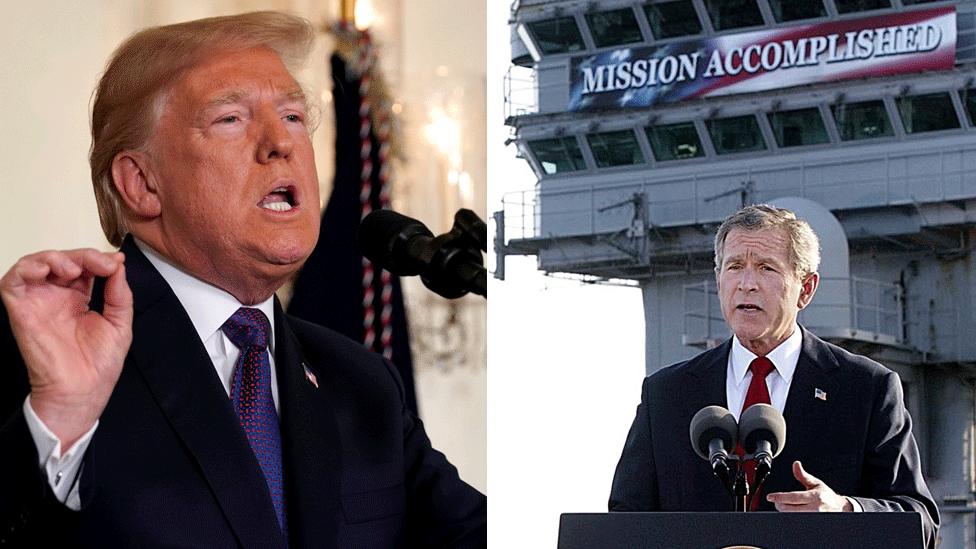
- Published14 April 2018
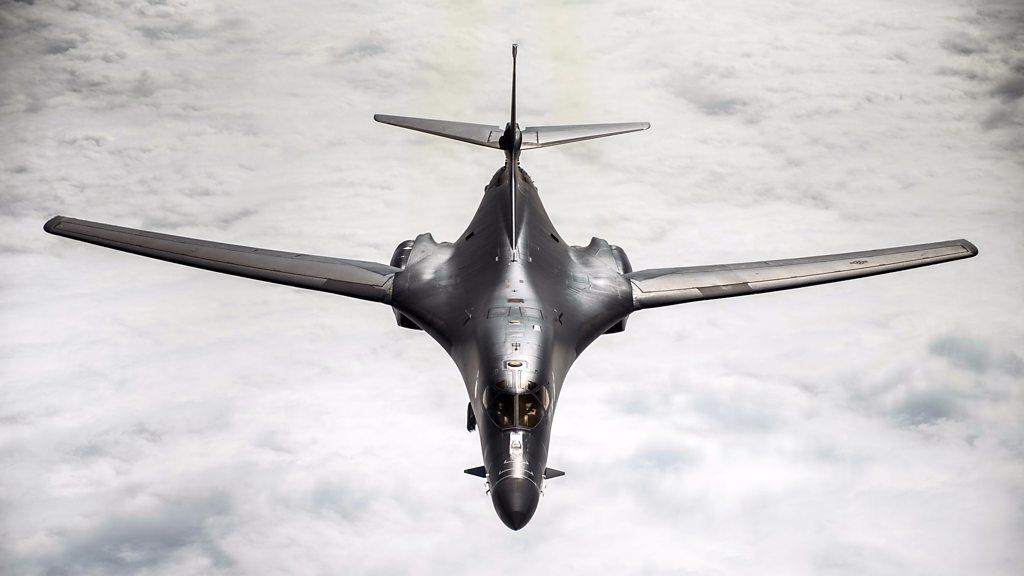
- Published15 April 2018
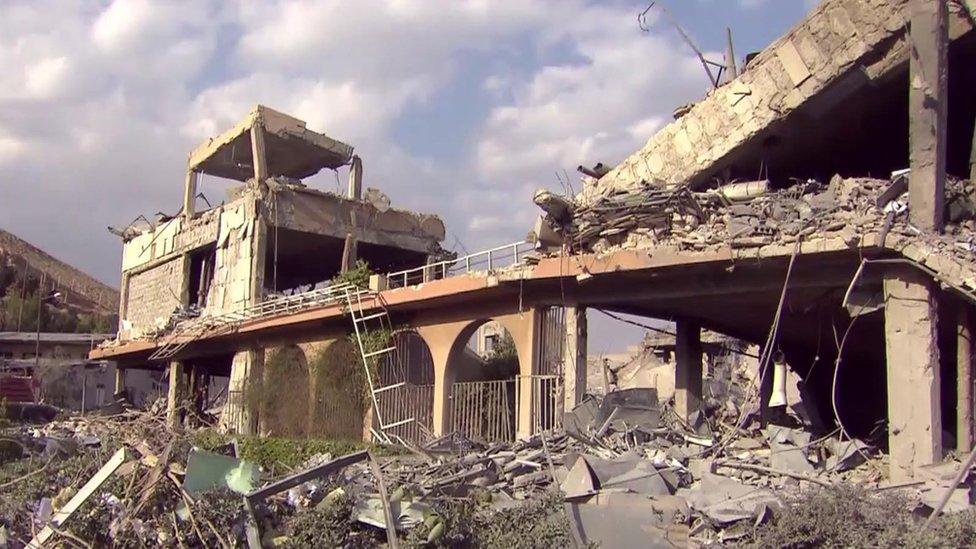
- Published15 April 2018
